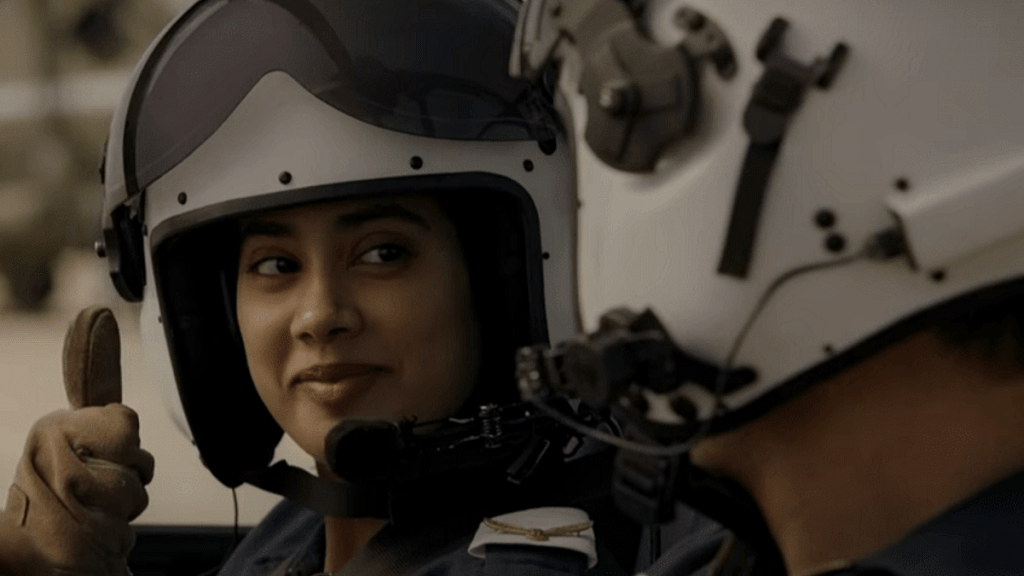To understand whether India’s youth of today are capable of figuring out the context or if they just get swayed by dramatic portrayal of the information, I decided to spend two hours watching Gunjan Saxena: The Kargil Girl on Netflix with my teenage daughters.
I was a contemporary of Flight Lieutenant Gunjan Saxena, the retired Indian Air Force (IAF) officer on whose life the Netflix film is based. I had joined the Army in 1994 and was part of the first group of 100-plus women inducted in the Indian Army. I can say I was among the first few to have had close first-hand information of how women “struggled” to create a niche for themselves in the male-dominated profession of armed forces.
To my surprise, though, I could not relate to any of the so-called challenges that Gunjan Saxena’s character, played by Janhvi Kapoor, faces in the Netflix movie, except for the challenges arising out of lack of infrastructure — for instance, a separate changing room for the female officers.
It is true that the Indian armed forces have been a male bastion for more than four-and-a-half decades post-Independence; it is also true that the rulebooks, the infrastructure and the work culture were more suited and influenced as per male requirements. But it Is not true that having opened doors to women in 1993, the armed forces have not evolved to relook at these issues.
Also read: The only woman warrior in Kargil War flew her Cheetah helicopter without fear
A wrong portrayal
Watching Gunjan Saxena: The Kargil Girl movie with my kids was a very difficult proposition because it raised so many questions in the minds of my daughters that they became really confused about the way they see their mother. My image of a strong, independent woman who always stood her ground and faced all kinds of challenges in life with a smile was being questioned.
Every scene in the movie that was laced with gender bias evoked a kind of sympathy from my daughters who suddenly felt how “bechari” their Mom would have been during her Army days. The endless stories that I have shared with them about my success, achievements, mountaineering expedition, rafting, skiing, being instructor to officers such as Captain Vikram Batra, Param Vir Chakra and Lt Sourav Kalia in the Indian Military Academy (IMA), being adjutant of a training battalion for troops and whatnot were all being questioned.
Suddenly there was a doubt over what the reality was — all those memories that I had shared with them or what they were seeing on the screen? Who was telling the truth and who was telling the lies? Did the Indian armed forces build strong women or did they malign strong women? The list of the questions my daughters had was endless.
Still the most pertinent question that they had was — has the induction of women in Indian Army paved the way for gender equality or gender bias?
While I am there to answer the questions of my daughters and set the context for them to dig deeper into the real meaning of these complex words, I really am worried about thousands and thousands of other impressionable minds who are lost in the labyrinth of information available on various platforms.
Are the makers of Gunjan Saxena — The Kargil Girl and other such content accountable to the society? Is there a mechanism to create checks and counter balances? I don’t have answers to these questions at this point of time but I have the determination to challenge the status quo.
Captain Shikha Saxena (retd) was among the first 100-plus women and the few Sapper Officers to have joined the Indian Army in 1995. Views are personal.
